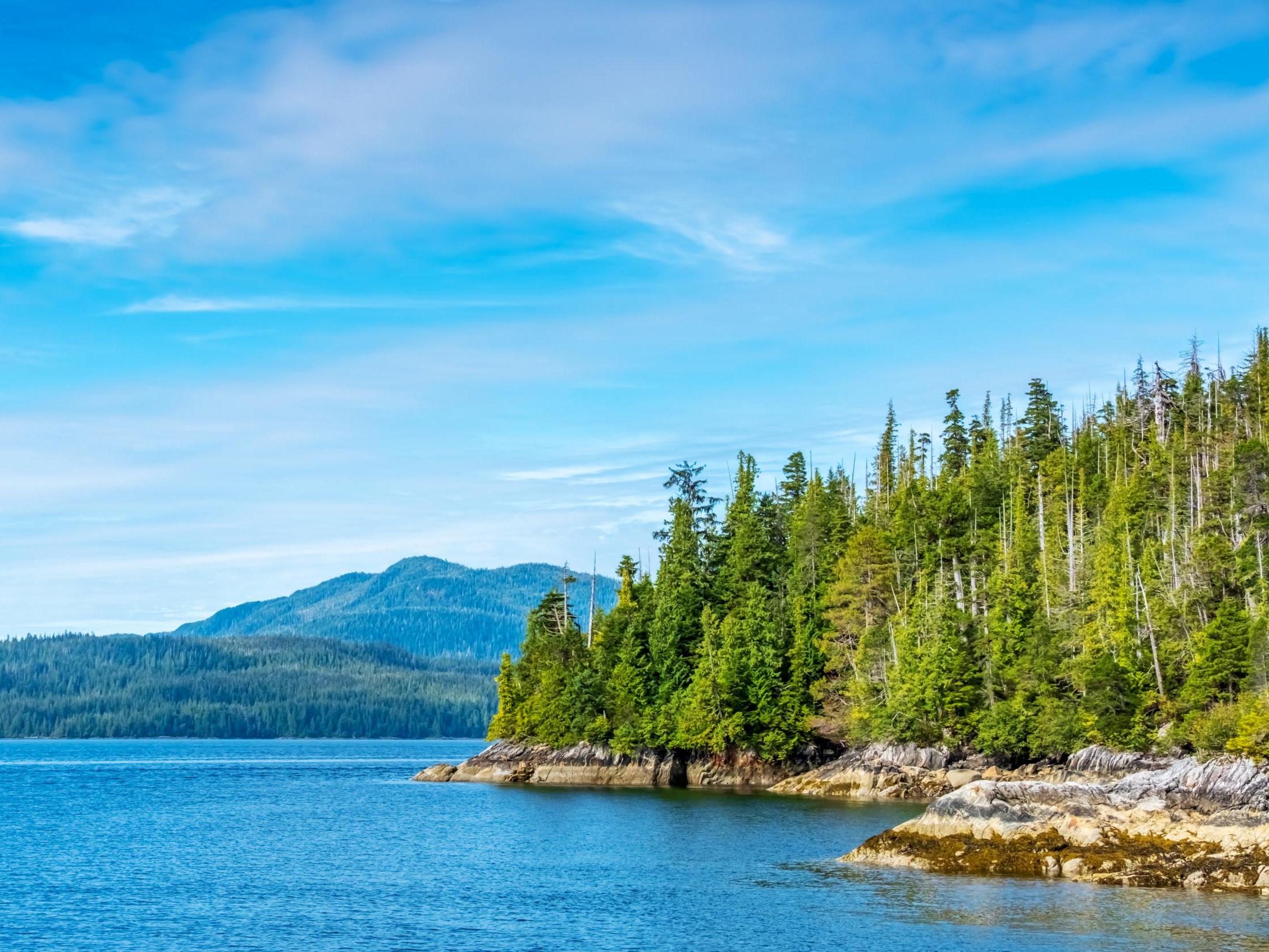Biden throws out Trump plan to commercialise giant US forest dubbed ‘the lungs of North America’
Republicans and lawmakers in Alaska have been pushing to open the forest to road construction and logging

The Biden administration on Friday announced it would reverse a Trump-era decision to strip environmental protections for the Tongass National Forest in Alaska, one of the world’s largest intact temperate rain forests, nicknamed the “lungs of North America” by scientists.
They plan to repeal or replace a decision that would’ve opened about nine million acres of the pristine wilderness to logging and road construction.
The Tongass Forest is what’s called a “carbon sink,” a natural feature with the ability to absorb and store atmospheric carbon, and it’s one of the most important ones on the continent. It captures 8 per cent of annual US carbon emissions.
“While tropical rainforests are the lungs of the planet, the Tongass is the lungs of North America,” Dominick DellaSala, chief scientist with the Earth Island Institute’s Wild Heritage project, told PBS last year. “It’s America’s last climate sanctuary.”
Alaskan lawmakers like US Republican senator Lisa Murkowski had argued exempting a section of the forest from the Clinton-era “roadless rule,” which bans road construction in much of the sprawling national forest system, would create important economic opportunities for the state. The Trump administration obliged, announcing it would open more than half of the 17 million acre forest to development last October.
“In 2001 Alaska’s timber industry had over 500 million board feet of manufacturing capacity in Southeast Alaska, but now over 80% of that 2001 manufacturing capacity has been starved out of business and the remaining manufacturers are barely surviving at a small fraction of their capacity,” business leaders wrote in a letter to the U.S. Forest Service in 2018.
The Trump administration had tried to argue that allowing for more logging wouldn’t have a major impact on this important carbon sink, since timber would sequester carbon and the forest would continue to regrow, ultimately balancing out or even storing more carbon as a result. Prominent scientists have called this analysis “misinformation.”
Beyond the climate impacts, increased logging within Tongass, part of the US’s largest national forest, could adversely impact the salmon population, a key staple in the rural state, especially for tribes like the Haida, Tlingit, and Tsimshian peoples, who have lived in the area for more than 10,000 years.
The renewed protections for the forest are part of the Biden administration’s larger climate agenda, which has included rejoining the Paris Climate Accords, and requiring federal agencies to make climate plans of their own. Still, up until the Tongass announcements, scientists said the Biden administration had been lagging when it came to protecting old-growth forests, a key part of the climate agenda.
“Establishing permanent protections for temperate rainforests in the Pacific Northwest and Alaska, along with mature federal forests and trees nationwide, will be one of the most cost-effective and essential near-term climate solutions the United States can employ,” a group of environmental organisations wrote the White House in a letter in April, urging the administration to make forestry protections a key part of an upcoming United Nations climate conference in November.
Subscribe to Independent Premium to bookmark this article
Want to bookmark your favourite articles and stories to read or reference later? Start your Independent Premium subscription today.

Join our commenting forum
Join thought-provoking conversations, follow other Independent readers and see their replies